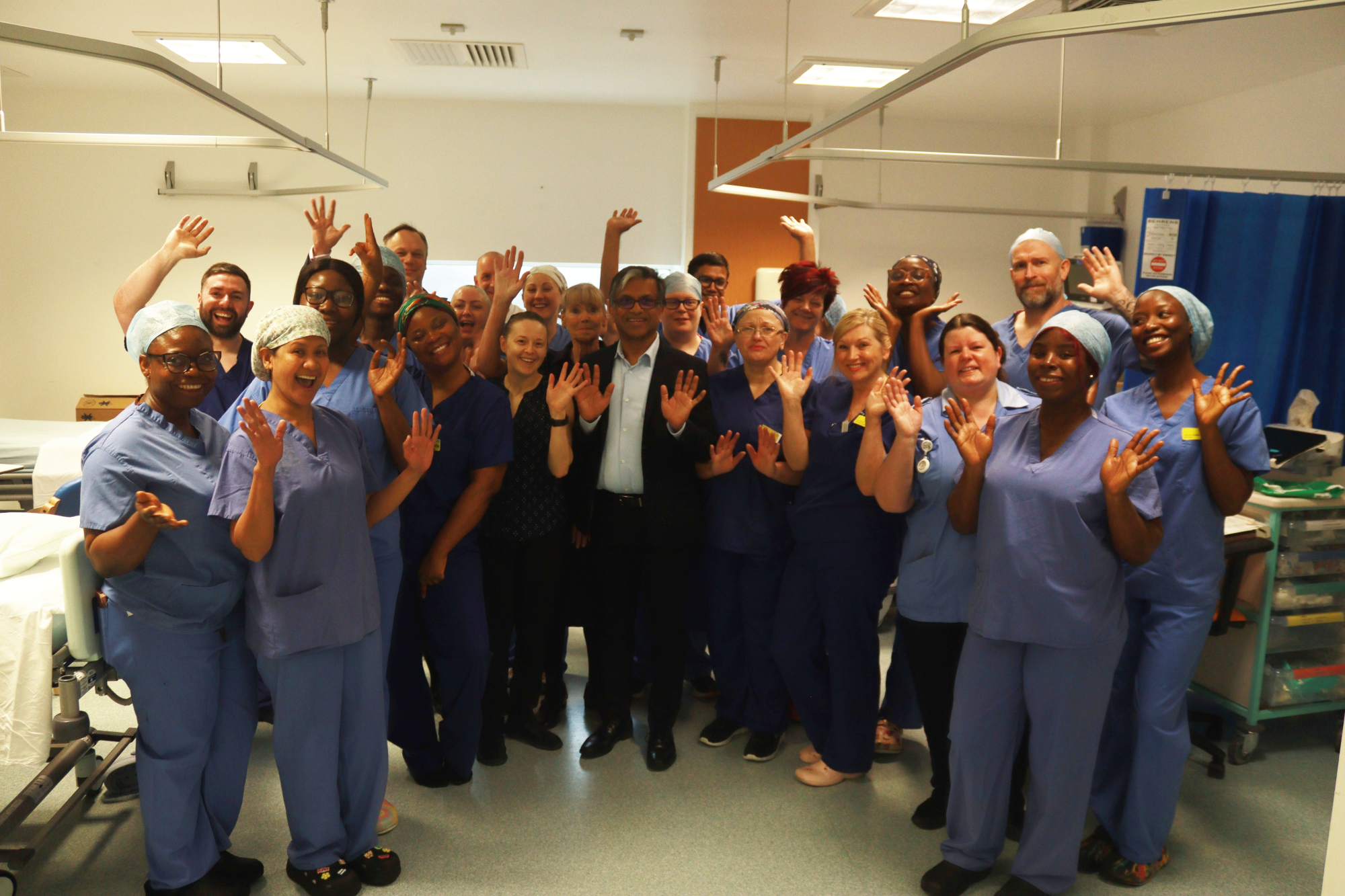The number of patients experiencing long waits for surgery has fallen by more than forty five per cent in the Black Country, according to new figures, as surgical teams in Dudley slash waiting times with weekend theatre lists.
Three NHS hospital trusts in the Black Country were selected as part of a national initiative to cut waiting times and help people who are out of work waiting for treatment.
In September 2024, the Dudley Group NHS Foundation Trust, Sandwell and West Birmingham NHS Trust, and the Royal Wolverhampton NHS Trust were chosen to participate in the government’s Further Faster 20 initiative. These providers were picked due to their locations in areas with a greater number of inactive adults and longer waits for surgery, compared to other hospital trusts.
In April 2024, the three providers had a combined total of 7,756 patients waiting over 52 weeks for their planned surgery. But within a year this number had reduced by 3,515 (more than 45%), partly due to the initiatives conducted under the Further Faster 20 programme.
The initiative has unlocked a range of new activity, designed to cut waiting times using innovative approaches to improve theatre flow and boost capacity.
High Intensity weekend theatre sessions in Dudley
The Dudley Group NHS Foundation Trust have recently introduced high-intensity theatre (HIT) weekend sessions delivering numerous benefits to the people of Dudley.
Our General Surgery Surgical Team have been undertaking High Intensity Theatres to support the reduction in waiting lists and as a result are receiving national recognition.
Since June 2024 there have been 226 surgeries performed through this initiative and of these we have seen 91% same day discharges. The team are able to perform 10 surgeries on each day compared to five on a typical day.
The Dudley Group consultant Chaminda Sellahewa who leads the HIT list programme said: “This initiative has provided excellent outcomes with reduced complications, reduced re-admissions, and increased patient satisfaction due to reduced waiting times. Overall, we have increased our productivity and are redefining surgery with high volume, high quality and high efficiency where every case counts”
On each weekend HIT list there are an average of 10 cases, which are primarily hernia and laparoscopic cholecystectomy (Gallbladder removal) cases.
Chief Executive Diane Wake said: “We are incredibly proud of our surgical team for their focus on high-intensity theatre days and these are having a significant impact on patients and the wider organisation. It is a fantastic way to reduce waiting lists and ensure our patients have the best experience possible.”
Local resident Roger Jones said: “I had my operation at Russells Hall Hospital on a Saturday afternoon and it was a great service by wonderful people.”
As a result of the successes so far, The Dudley Group General Surgery Team are being asked to speak nationally on how they are able to run these lists.
The focused weekend HIT lists allow our surgical team to run many standardised procedures on the same day which isn’t always possible on a typical day with so many other surgeries being delivered. The limited downtime this creates has both increased our productivity and the amount of surgeries performed leading to reduced waiting lists for patients.
Our surgical team also identified weekends as a time when less theatres are running, allowing the HIT list team to have increased staff resources and reduce time between cases.
The HIT list success is down to incredible teamwork and the team consisting of surgeons, registrars, anaesthetists, scrub nurses, operating department practitioners, clinical support workers, ward staff, medical secretaries, recovery nurses and support from the operational team have all contributed to the smooth running of these lists.
The key factors involving these theatre sessions are maximising theatre time and minimising the downtime between cases, leading to increased theatre throughput, streamlining the process with efficient flow, standardised surgical procedures, effective communication, and multi-disciplinary team working.











